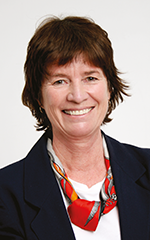

I still remember my first computer. It was an Apple, and it had a 64K hard drive, and I was so proud of it. Around that time a famous quote attributed to Bill Gates was going around saying “640K ought to be enough for anybody” − which he later strongly denied. Another one came from Digital Equipment founder, Ken Olsen: “There is no reason for any individual to have a computer in his home.”
Fast forwarding some years, last month the latest talk was about GPT-3.5. Now we have the new and improved version GPT-4, announced on 21 March, which is said to be ten times more advanced than its predecessor. According to OpenAI, GPT-4 is more reliable and creative, and can accept visual inputs including images, graphs and screenshots.
Instead of focusing only on text, GPT-4 can analyse and comment on images and graphics. For example, it can describe the content of a photo, identify trends in a graph, or generate captions for images. It can also understand context and distinguish subtleties better, resulting in more accurate and coherent responses than its predecessor. Apparently GPT-4 is 82% less likely to respond to unethical questions, and it’s 60% less likely to fabricate facts – or have ‘hallucinations’ − and it can create a real human to circumvent Captcha. For $20 a month you can access GPT-4 through ChatGPT Plus.
Anyone who loves photography, like me, will probably know that you can already create a realistic image, without needing a camera, by typing out a description of what you want. This has turned the photography world on its head. Should the really creative photographers worry? Maybe not. AI can’t replace the inborn creative potential of our species. It is by far one of the most important skills we have developed over a million years. Art generators still rely heavily on human ideas.
When Gates says something, everyone listens. In his book The Road Ahead, he said: “We always overestimate the change that will occur in the next two years, and underestimate the change that will occur in the next ten.” I was looking at his most recent Gates Notes blog published on 21 March − “The Age of AI has begun” − where he says that even bigger changes are coming.
He says he’s seen only two technological advances in his lifetime that struck him as revolutionary. The first was the graphical user interface. Remember when you had to type in a command at the C prompt C:> to do anything on your computer. In 1980, when he first saw the demo that allowed users to click on what they wanted, he knew it would change everything. Forty two years later he says he had the same feeling that the whole world was about to change when a bot from Open.ai met the challenge he’d created it for it to pass the Advanced Placement biology test.
He reckons the development of AI is as fundamental as the creation of the microprocessor, the personal computer, the internet, and the mobile phone. It will change the way people work, learn, travel, get health care, and communicate with each other. Entire industries will reorient around it and businesses will distinguish themselves by how well they use it. These are some of the changes he foresees, and what we should do to prepare.
Firstly, we should start asking how AI can benefit our businesses. Wondering whether you really need AI to run your business may be like wondering 20 years ago whether you really need a website. And the business leaders who figure that out sooner will have an advantage.
We also need to start thinking differently about our jobs. AI can help us work more efficiently. This will eliminate the tedious parts of jobs and create opportunities for new jobs, some of which we haven’t thought of yet. I can think of one possibility. Maybe those useless ‘agents’ you find on websites like SARS, where you struggle to get through to a human being, will actually be able to help you.
Among his words of wisdom is the advice to stop worrying about AI running amok.
Today’s AI can learn to do things better, but cannot take on completely new tasks. Artificial general intelligence, or ‘strong AI’ would be capable of learning any task or subject, but it doesn’t exist yet. That future is distant and may never arrive at all.
I don’t think we have any idea right now how AI will change our world over the next few years, but we can be sure that it will.
| Tel: | +27 11 543 5800 |
| Email: | [email protected] |
| www: | www.technews.co.za |
| Articles: | More information and articles about Technews Publishing (SA Instrumentation & Control) |

© Technews Publishing (Pty) Ltd | All Rights Reserved